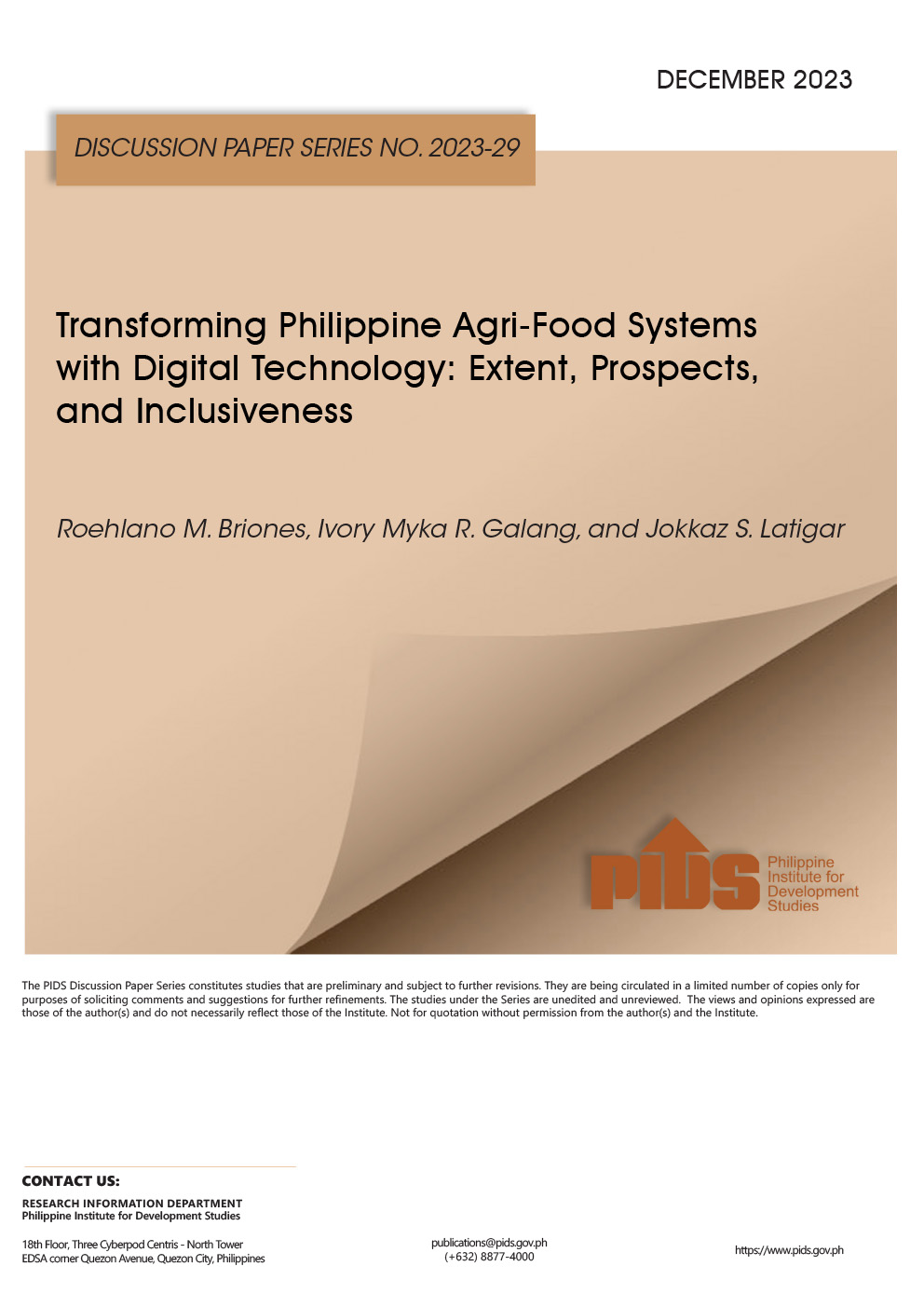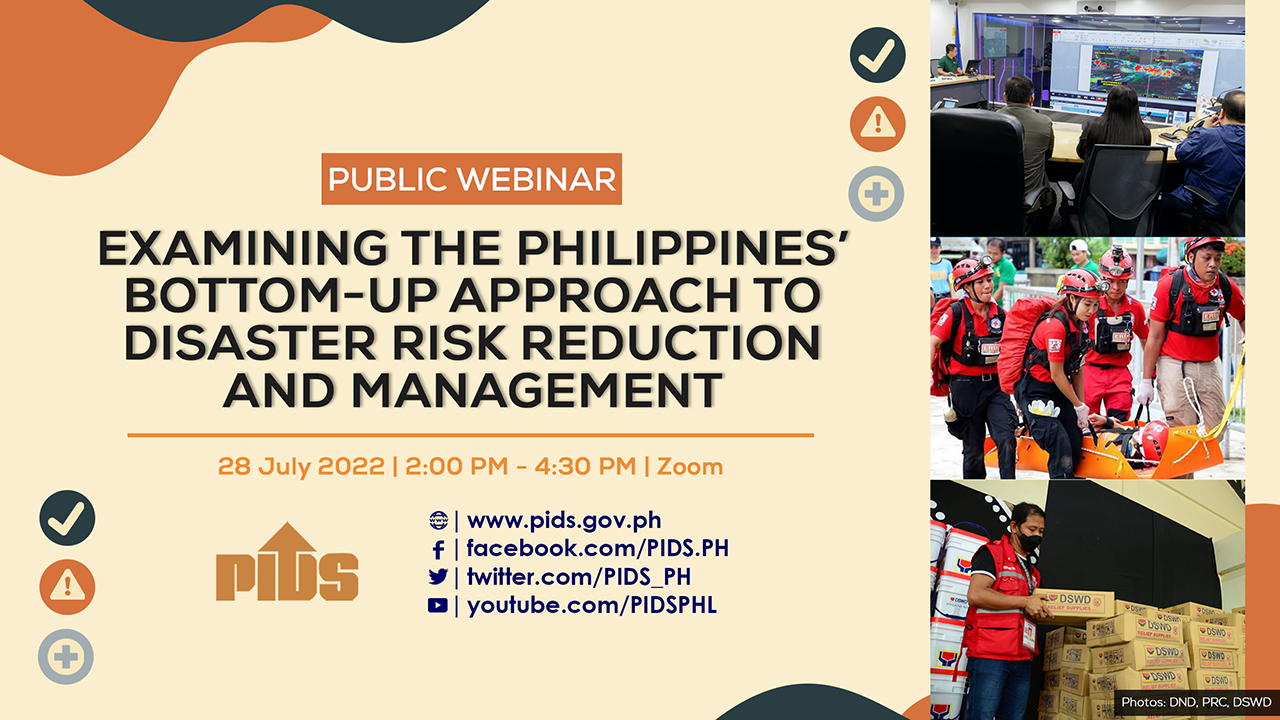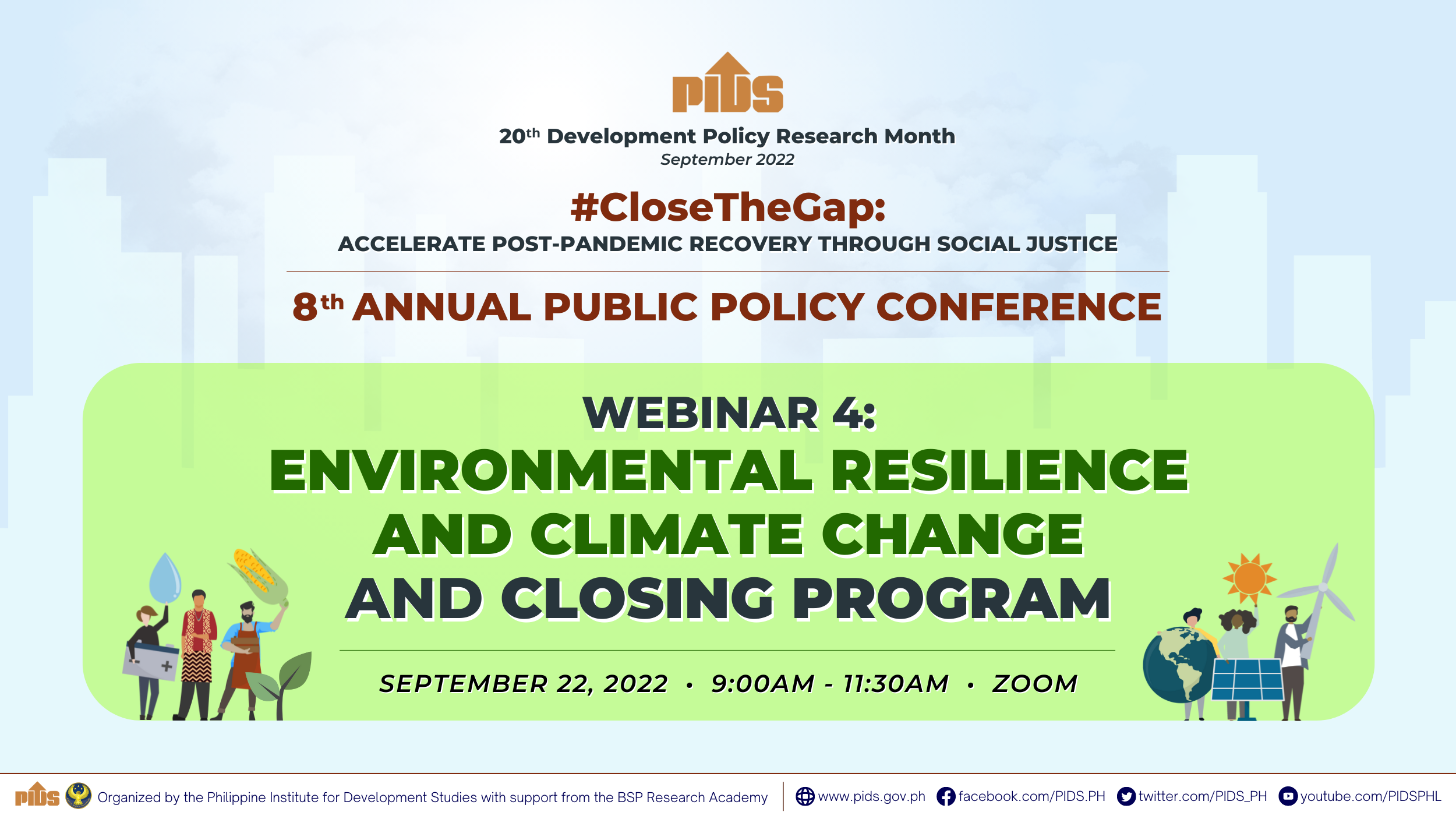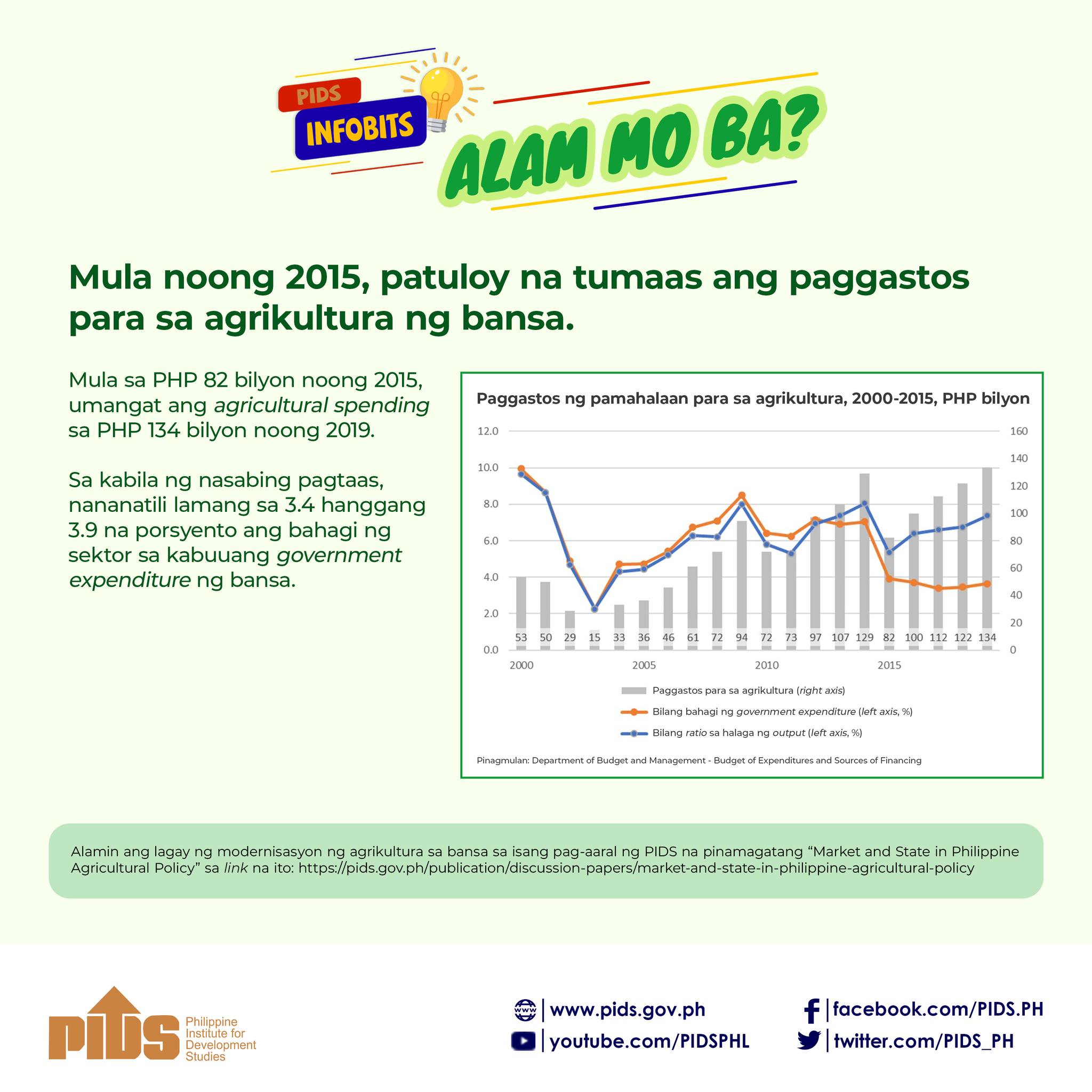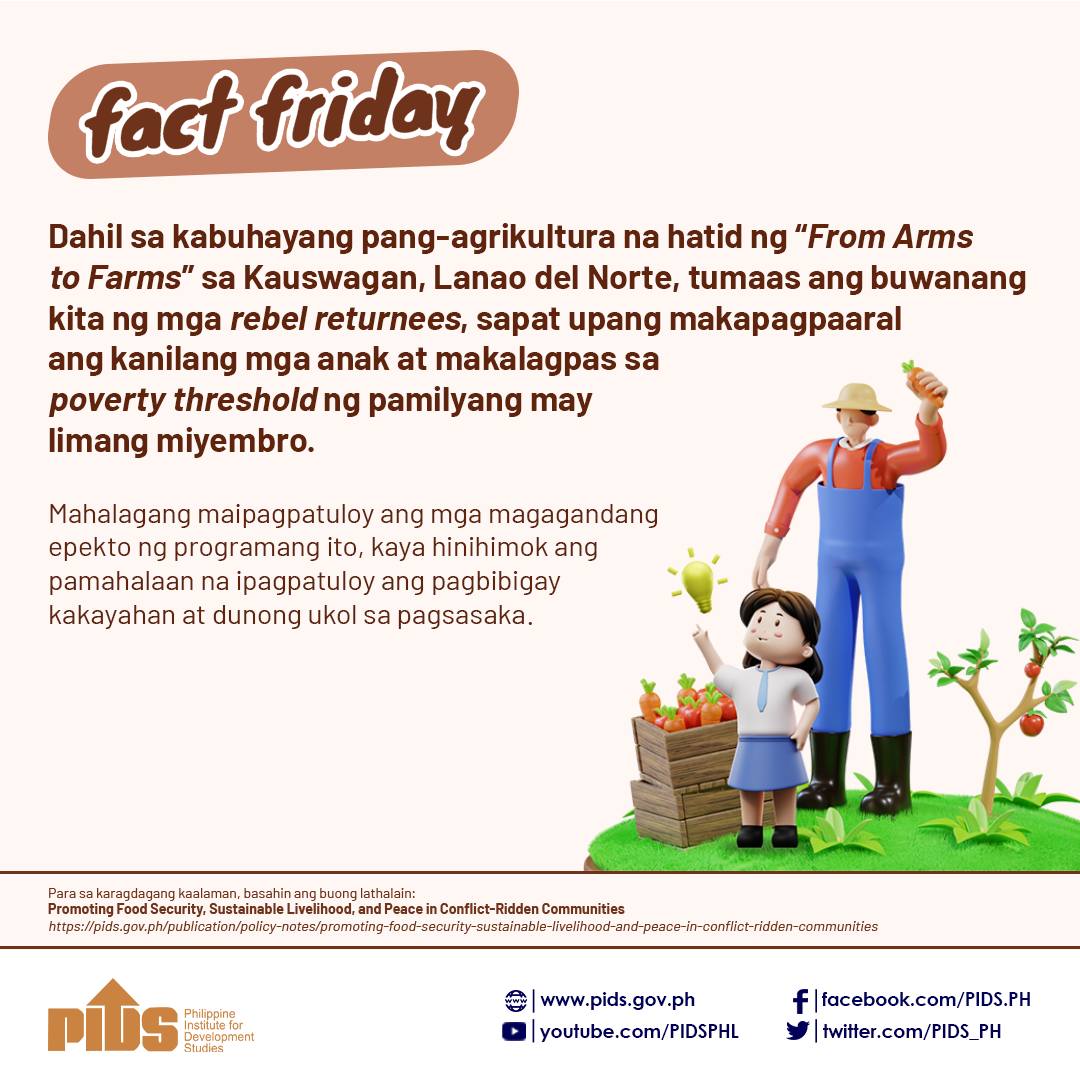Despite the proliferation of higher education institutions (HEIs) offering agriculture, forestry, and natural resources (AFNR) courses in the country, there has been a persistent decline in AFNR enrollment over the past decade. A policy research jointly undertaken by the Philippine Institute for Development Studies (PIDS) and the Philippine Council for Agriculture, Forestry, and Natural Resources Research and Development (PCARRD) has been completed to examine this alarming trend. The study also provides projections on the future of AFNR education and its graduates.
The research confirms that the enrollment decline began around SY 2002-2003. Over time, supply growth is expected to outpace growth of demand because there will be a faster growth of the AFNR workforce with limited change in AFNR labor demand. This in turn will result in a greater increase in unemployment and underemployment of AFNR graduates.
Despite impressions to the contrary, the study finds that poor quality of schooling and high cost of education are not significant factors behind this trend. At least for State Universities and Colleges (SUCs), students and employers affirm that graduates generally have the expected level of skills and proficiencies, and that AFNR education is accessible even to students from poor backgrounds. Rather, the enrollment trend is mostly explained by external factors that impact on the labor demand for AFNR graduates. In short, work opportunities in agriculture are not as attractive as other courses because the AFNR labor market is unable to absorb and accommodate all AFNR graduates, particularly graduates of traditional courses. The external factors include: declining share of agriculture in GDP and employment; rapid urbanization; increasing migration for overseas work; and the widespread availability of alternatives to traditional college schooling, such as vocational and technical education.
Upon closer inspection, the data show that the negative trend in enrollment is not spread across all AFNR courses. Traditional courses like forestry and agriculture suffered the biggest reductions in enrollment. However, some nontraditional courses like agribusiness management and food technology had steady or increasing enrollment levels. There is no decline in AFNR enrollment in regions experiencing boom in agribusiness sector like regions XI and XII. These findings are consistent with the on-going transformation of the country`s agriculture sector along agribusiness lines.
There are also internal problems inherent in the country`s higher education system that may have played a role in the decline. There are no comprehensive career counseling programs in high schools that supposedly provide dependable information and guide students in their college course choice. Most importantly, over the past few decades, there has been expansion and proliferation of HEIs, many of which offer AFNR courses, owing to political considerations rather than rational comparison of supply and demand factors.
The study therefore recommends that reforms be instituted in HEIs to address this trend. It suggests that maximizing limited state subsidy and budget allocation for SUCs entails rationalizing degree offerings and institutions.
The research confirms that the enrollment decline began around SY 2002-2003. Over time, supply growth is expected to outpace growth of demand because there will be a faster growth of the AFNR workforce with limited change in AFNR labor demand. This in turn will result in a greater increase in unemployment and underemployment of AFNR graduates.
Despite impressions to the contrary, the study finds that poor quality of schooling and high cost of education are not significant factors behind this trend. At least for State Universities and Colleges (SUCs), students and employers affirm that graduates generally have the expected level of skills and proficiencies, and that AFNR education is accessible even to students from poor backgrounds. Rather, the enrollment trend is mostly explained by external factors that impact on the labor demand for AFNR graduates. In short, work opportunities in agriculture are not as attractive as other courses because the AFNR labor market is unable to absorb and accommodate all AFNR graduates, particularly graduates of traditional courses. The external factors include: declining share of agriculture in GDP and employment; rapid urbanization; increasing migration for overseas work; and the widespread availability of alternatives to traditional college schooling, such as vocational and technical education.
Upon closer inspection, the data show that the negative trend in enrollment is not spread across all AFNR courses. Traditional courses like forestry and agriculture suffered the biggest reductions in enrollment. However, some nontraditional courses like agribusiness management and food technology had steady or increasing enrollment levels. There is no decline in AFNR enrollment in regions experiencing boom in agribusiness sector like regions XI and XII. These findings are consistent with the on-going transformation of the country`s agriculture sector along agribusiness lines.
There are also internal problems inherent in the country`s higher education system that may have played a role in the decline. There are no comprehensive career counseling programs in high schools that supposedly provide dependable information and guide students in their college course choice. Most importantly, over the past few decades, there has been expansion and proliferation of HEIs, many of which offer AFNR courses, owing to political considerations rather than rational comparison of supply and demand factors.
The study therefore recommends that reforms be instituted in HEIs to address this trend. It suggests that maximizing limited state subsidy and budget allocation for SUCs entails rationalizing degree offerings and institutions.

